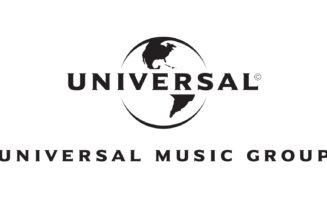
The good news is that, thanks in large part to a growing coalition of artist advocates, led by SoundExchange, many countries are beginning to pay American performers. In the coming years, we expect most countries to accept the notion of “National Treatment,” which means that if you pay your citizens, you pay American citizens, too. So, now’s the time to register with a collection agent for your works. If you are a producer or musician, make sure you are properly credited for all the parts you play. That helps significantly in some countries, like Germany. This revenue can range from a few bucks to a few hundred thousand dollars. It matters, so get it straight.
2. The Desk Audit: If you are signed to a record label or music publisher, it’s a good idea to investigate your statement and ask questions. Many companies have good accounting departments and are quite receptive to inquiries, without you having to engage in a full audit. We have found a lot of money, which labels and publishers have readily credited, in the desk audit process. For example, we have discovered accounting statements missing albums, missing hit songs, and missing huge synchs in their royalty reports to artists and songwriters. The labels and publishers can have such huge catalogs that this can happen inadvertently so artists and songwriters need to double check. In one instance, we found enough money to put the songwriter into the new contract period, leading to a payment of a major advance. If you look, you’ll likely find something, so look under those rocks.
For recording artists, one item in particular to look for is whether producer advances have been credited back to your own account once the producer account is recouped and payable. With easy access to stream count data from DSPs you can do your own “back of the napkin” math, so see if your gross streaming revenues and mechanical royalties are in the right ballpark. Even if you’re not a math person, you can do this.
Finally, check how much you received on the new deals that labels and publishers are making with various social media companies, like Facebook, and TikTok. This has been reported as over 9 figures a year to each major label group (including their publisher entities) and is growing. It can and should be a significant revenue source in the future, so artists and songwriters should check their statements to ensure they are getting their share of such royalty payments.
And, if your earnings in any 2-year period exceed half a million dollars, it would be good to look into a proper audit. Audits aren’t as expensive as they used to be, and plenty of great auditors are available at relatively low up front prices. It’s worth it.
3. SoundExchange: Since there are so many data points being sent to SoundExchange by the services compliant with the law, it is very important that you ensure that all registered titles are properly allocated between the releasing artist, the producer, the mixer, and the featured artists. SoundExchange defaults to equal splits amongst all feature artists, so if you have a different arrangement, it’s important to make that clear. Also important is to look at all remixes to ensure the splits are appropriate and as agreed. SoundExchange will sometimes credit the remixer with the same percentage of performance income as a feature artist. And finally, if you are a producer or mixer, all featured artists need to sign your LOD in order for you to obtain the full amount of your percentage. Otherwise, you only get a pro-rata fraction.
4. Residual Funds: If you are a recording artist or musician, you may be surprised to find out all of your income faucets aren’t even turned on. There are a few lesser-known royalty sources which can yield significant dividends, but you have to sign-up. Keep in mind, you do not need to be a union member to be eligible for these payments.
The AFM SAG/AFTRA IP Rights Distribution Fund brandishes a mouthful of a name, and also wields a large checkbook. This fund collects performance royalties from the likes of Soundexchange and societies around the world, and pays to non-featured singers and musicians. Did you perform gang-vocals late one night on the latest internet phenom’s smash hit? Did you get a producer fee, but you also played keys on every song on a chart-topping album? This fund may have a check for you
The Film Musicians Secondary Markets Fund collects and distributes residuals for musicians who play on songs made for movies. If you have heard your musicianship on an in-flight movie, then this fund might be a fund for you.
And lastly, the Sound Recording Special Payments Fund is responsible to pay musicians residuals for the sale of recorded music. This includes everything from vinyl to YouTube and payments are based on sales. If you were a session musician for a successful major label record and all you got was a union scale check, your name may be sitting on a long list of unregistered musicians, listed on their website, just beckoning you to register and get your money.
5. The Catalog: All artists should have an up-to-date catalog, detailing all songs written, co-written, released, produced, mixed and/or on which you performed. This should include confirmed splits registered with your performance rights organization (ASCAP/BMI/GMR/SESAC), your confirmed SoundExchange split, your confirmed royalty, and any copyright registration numbers. The catalog for any artist is the bedrock of their musical career. It should be complete and up to date. We recommend creating it as a Google sheet and sharing it with your team.
So there you have it, plenty to do in 2021 to ensure that your business is built on rock, all the pennies are accounted for, and nothing is missing. Happy hunting!
Jordan Bromley leads the Entertainment, Transactions and Finance group at Manatt, Phelps and Phillips. Mike Merriman founded, owns and operates Parr3, LLC, a premier business management firm. They have both been recognized by Billboard in its recent Top Lawyers and Top Business Managers list, respectively.










